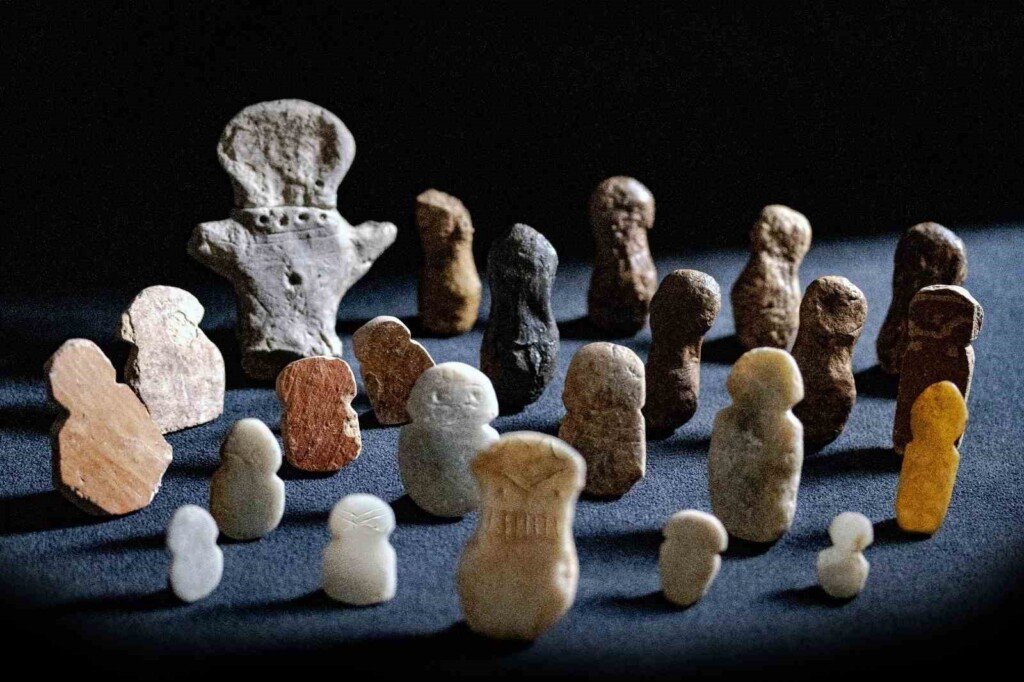Ageism in sport and the Olympics

For athletes, becoming an Olympian is an honor. All the preparation, goals, sacrifices and stretches are done on a global stage. The audience is rooting for you. Your family gathers to watch you play. You might even become a meme.
While people are already looking ahead to the 2028 Olympics, I’m still thinking about this year’s Olympians and the conversation surrounding their age. I mean, of course, commenting on an athlete’s age is an old story, pun intended. Whether you’re a professional or not, exercise can be incredibly hard on the body and mind. But I can’t get over how our culture ages professional athletes. For most people, their 40s are a time to continue to discover their own strengths and form a life that they can continue to aspire to. For athletes, being in your 40s means Crypt Keeper is ready to give you that final push.
Just look at Australian basketball player Lauren Jackson, the oldest athlete at the Paris Olympics at 43 years old. She shared on Instagram that she actually came out of retirement to compete in this year’s Olympics. fifth Olympic Games. She’s not the only one considered an old-timer this year.
Dynamic Diana’s final dance at the Olympics
Diana Taurasi has been playing basketball for the Phoenix Mercury since being drafted into the WNBA in 2004. She spoke ruefully of the 2024 Olympics – her sixth Olympics and her most in women’s basketball history – and her last. A carousel of photos on Instagram during the games showed Taurasi’s performance at each of her Olympics, and there was a lot of noise that basically amounted to: Why don’t you just retire? In response, Taurasi called out ageism in sports and confirmed she was here to compete.
As women’s sports continue to grow, especially in the WNBA, Diana Taurasi is an absolute foundation for that growth. Noise aside, seeing Taurasi still playing the game at the level she does should only speak to what can be achieved.
Will LeBron James be strong enough to blow out the candles?
If I had a dollar for every time a commentator mentioned LeBron James turning 40, I could buy an NFL team. It’s worth noting that LeBron is actually still 39 years old and won’t turn 40 until the end of the year.
As a standout high school basketball player, LeBron has been in the spotlight for most of his life. Earlier this year, he became the highest-scoring basketball player of all time. I wonder if the commentator was motivated to mention his age. Is this his last Olympics? When will he retire? Meanwhile, in the pre-Olympic exhibition games, he was so dominant that he looked like he could play for another two decades. His physical attributes are exceptional, which pits the rhetoric around his age against his athleticism.
Brady bye
Tom Brady played football into his 40s and retired just a few years ago. There’s been a lot of back and forth about his retirement, will he/won’t he. When he was with the New England Patriots, there were multiple seasons where he clearly didn’t live up to the public’s expectations. Then he won the Super Bowl in his first season with his new team. What follows is further discussion of unmet expectations, mostly from commentators who have never attended a sporting event, or from social media users hiding behind anonymous accounts.
Because Brady has been playing for decades, even as a kid, leaving the sport that has given him so much — and for which he has given so much in return — is not taken lightly. When Brady retired, the decision marked the end of an incredible career and the beginning of another as a broadcaster who actually plays the sport.
Age is a state of mind
All in all, whenever an athlete retires, viewers should view the athlete with awe, regardless of their age.
We’ve all seen stories of people in their 70s running marathons. People want to know: What does this person eat? How could they do this? Shouldn’t the elderly sit in rocking chairs? Meanwhile, these runners (and other athletes) continue to defy the odds and all of our expectations.
At the same time, many athletes retire at a young age. They realize their dreams of becoming professional athletes, win championships in their sports, and then decide to keep their bodies in shape and try something new. Still, they left an incredible legacy. An example of this is Serena Williams’ evolution away from tennis, as she Fashion. Eager to expand her family and continue running Serena Ventures, she stopped playing tennis. She always knew she wouldn’t play this game forever. However, the memory of her resilience will echo throughout the sport, leaving a lasting impression for generations to come.
Changing the way we think about our bodies, age and rest can only help society progress. It will allow us to cut through the noise that comes with ageism. It will help us stay grounded and stay true to our own voices. As I’ve mentioned before when writing about mental health in sports, an athlete’s age only fuels their strength and wonder. We can all go beyond what we think is possible, both on the court and in the field.


 Anal Beads
Anal Beads Anal Vibrators
Anal Vibrators Butt Plugs
Butt Plugs Prostate Massagers
Prostate Massagers
 Alien Dildos
Alien Dildos Realistic Dildos
Realistic Dildos
 Kegel Exercisers & Balls
Kegel Exercisers & Balls Classic Vibrating Eggs
Classic Vibrating Eggs Remote Vibrating Eggs
Remote Vibrating Eggs Vibrating Bullets
Vibrating Bullets
 Bullet Vibrators
Bullet Vibrators Classic Vibrators
Classic Vibrators Clitoral Vibrators
Clitoral Vibrators G-Spot Vibrators
G-Spot Vibrators Massage Wand Vibrators
Massage Wand Vibrators Rabbit Vibrators
Rabbit Vibrators Remote Vibrators
Remote Vibrators
 Pocket Stroker & Pussy Masturbators
Pocket Stroker & Pussy Masturbators Vibrating Masturbators
Vibrating Masturbators
 Cock Rings
Cock Rings Penis Pumps
Penis Pumps
 Wearable Vibrators
Wearable Vibrators Blindfolds, Masks & Gags
Blindfolds, Masks & Gags Bondage Kits
Bondage Kits Bondage Wear & Fetish Clothing
Bondage Wear & Fetish Clothing Restraints & Handcuffs
Restraints & Handcuffs Sex Swings
Sex Swings Ticklers, Paddles & Whips
Ticklers, Paddles & Whips














